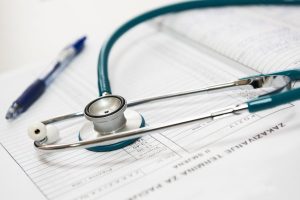Components of Drug Addiction Treatment that are Needed for Opioid Abuse

For those who find themselves consumed by opioid use, it takes a lot to realize and note that you have a problem. If you feel like your life is centered around taking this substance, or you can’t get through a day without relying on opioids, you need to figure out the best ways to get your life back on track! Although it can seem scary to admit that you need help, going to a special facility that has the resources to help those who are addicted to substances is key to figuring out the root of your problems and how to kick your substance abuse issue to the curb.
Learn more about a few components of a rehabilitation facility that can help you if you are abusing opioids. Even though it might not have been your idea to take opioids in the first place, you will live with the consequences if you do not recover from long-term opioid abuse!
Components of drug addiction treatment needed for opioid substance abuse
Opioids are a type of drug that is prescribed by doctors in the medical field. Typically prescribed to people of all ages after surgery, accidents, traumatic events, or dental procedures, opioids are highly addictive – which makes you question why doctors prescribe them so frequently with little guidance. Unfortunately, due to the high addiction rates, many people who are prescribed opioids have a hard time weaning themselves off of the drug as they get better.
Opioid abuse is a very common addiction in society today, along with other hard drugs and alcohol. Many people who seek drug addiction treatment are recovering from opioid abuse and possible overdoses that can occur from taking this prescription drug at a high rate. To make sure you recover and take care of your health, you need to choose a drug addiction treatment facility that has these three components.
Individual counseling
One of the main components that is much needed during drug addiction treatment is individual counseling. By seeing a therapist in a one-on-one setting, you can really talk about why you are taking opioids, what are your triggers when it comes to abusing drugs, and what coping skills you need to learn to figure out how to say no to opioids in the future.
Medical detoxification
The second component that is often needed at a drug addiction treatment facility for those who are abusing opioids is a medical-assisted detox plan. Since detoxing from opioids can be time-consuming and have many unwanted side effects during the process, you need to have someone there to take care of you and monitor you during this tough time. If you try to do this on your own, you might relapse due to the strong side effects or you may incur other health problems that can be damaging to your long-term health.
Behavioral Therapies
Different forms of therapy are essential in opioid addiction treatment to address the psychological and behavioral aspects of addiction. Cognitive-behavioral therapy (CBT), contingency management, and motivational interviewing are commonly used approaches. These therapies help individuals identify and change destructive patterns of thinking and behavior associated with substance abuse.
Relapse Prevention
Developing strategies and skills to prevent relapse is a critical component of opioid addiction treatment. This may involve identifying triggers, learning healthy coping mechanisms, creating a relapse prevention plan, and ongoing support to manage cravings and high-risk situations.
Co-occurring Disorder Treatment
Many individuals with opioid addiction also experience co-occurring mental health disorders like depression, anxiety, or post-traumatic stress disorder. Integrated treatment that addresses both substance abuse and mental health issues simultaneously is essential for successful recovery.
Group therapy
The last component needed to help you kick your pill addiction to the curb is group therapy. By attending group sessions, you will find that you are not alone when it comes to attending drug addiction treatment.
Aftercare and Continuum of Care
Opioid addiction treatment should not end after completing an initial program. A comprehensive aftercare plan is crucial for maintaining recovery. This may involve ongoing counseling, support groups, regular check-ins, and access to resources to prevent relapse and promote long-term sobriety.
Recommended Reading :
- Does Meditation help with Addiction?
- 4 Things to Do After Recovering From Alcohol Addiction
- Things to Know About Prescription Drug Addiction
- 5 Reasons Why Teenagers Engage in Drug Addiction
- How Alcohol Addiction Affects Your Body?
- Do You Have An Addiction Problem?
Conclusion
For those who need to find the best drug addiction treatment center for their substance abuse, make sure you find a reputable facility that has individual counseling, medical detoxification, and group therapy.






